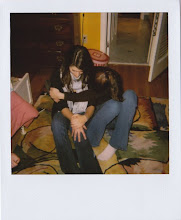Polanski article from the Financial Times Tobias Grey's feature on Roman Polanski is an intriguing exploration of the director's personal history and the story behind his latest film, The Ghost Writer, released in the wake of his stint in Swiss prison and sentencing to house arrest for a sex crime he committed in 1978.
I saw, and loved, The Ghost Writer. There may be some parallels to Polanski's present predicament, but screenwriter Robert Harris says they are purely coincidental. Nevertheless, critics and audiences alike will be making these assessments in the weeks to come.
The article demonstrates how certain events in Polanski's life have contributed to his work. The same is true of any artist. But it seems that when the event is a crime or social taboo, the correlations become newsworthy and subject to criticism.
Should we allow a filmmaker's personal life to so thoroughly infiltrate our perception of his work? I don't think so.
I have a friend who refuses to watch Woody Allen movies because she objects to his relationship with his former partner Mia Farrow's adopted daughter. Has Allen's work changed since the news of the affair came out in 1992? If it has, I certainly don't see it. It's not like he's been churning out material to procure public acceptance of his father-stepdaughter situation.
Watching The Ghost Writer, I noticed that the characters' foulest words had been dubbed over with tamer expletives. This, I suppose, was done to obtain a PG-13 rating (PG-13's are permitted only one F-bomb--any more than that and it's rated R). There are only to explanations I can think of: it was either an attempt to draw in the under-17 crowd, or, more likely, a message to American audiences, saying "Don't worry, there's no rape in this film!"
The censorship doesn't do much to diminish the quality of the film, except for taking some reality out of it. If you were accused of war crimes in a reputation-shattering international scandal, would you really be shouting freaking this and bloody that instead of the grown-up version of the word?
With all art, the viewer's interpretation is far more important than the artist's intent. If this is true, personal scandals should matter even less. Movies should be judged for what they are, not for the lives of the people who made them. Leave the tabloids out of it.

